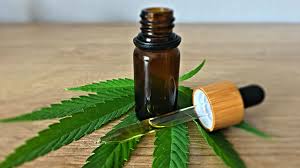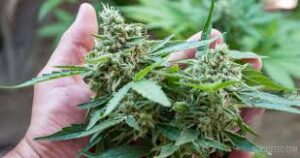Cbd Weed, In recent years, the popularity of cannabis has surged, particularly with the rise of CBD (cannabidiol) products. Among the various forms of cannabis available, “CBD weed” has emerged as a prominent topic of discussion. This article delves into what CBD weed is, its potential benefits, and the differences between CBD and traditional THC (tetrahydrocannabinol) cannabis.
What is CBD Weed?
CBD weed refers to cannabis strains that are specifically bred to have high levels of CBD and low levels of THC. While THC is the psychoactive compound in cannabis that produces the “high” associated with recreational use, CBD is non-psychoactive and is often associated with various therapeutic effects. CBD weed can be consumed in various forms, including flowers, oils, edibles, and tinctures, allowing users to choose the method that best suits their preferences.
The Benefits of CBD Weed
- Potential Pain Relief: Many users turn to CBD weed for its potential analgesic properties. Studies suggest that CBD may help alleviate chronic pain by interacting with the body’s endocannabinoid system, which plays a crucial role in regulating pain.
- Anxiety and Stress Reduction: CBD has gained attention for its potential to help reduce anxiety and stress. Some studies indicate that CBD may help modulate mood and anxiety levels by influencing serotonin receptors in the brain.
- Anti-Inflammatory Properties: CBD is thought to have anti-inflammatory effects, which may benefit individuals with conditions characterized by inflammation, such as arthritis or inflammatory bowel disease.
- Neuroprotective Effects: Preliminary research suggests that CBD may have neuroprotective properties, making it a subject of interest for conditions like epilepsy and neurodegenerative diseases.
- Sleep Aid: Many individuals use CBD weed as a natural remedy for sleep issues. Some research indicates that CBD may help improve sleep quality and reduce insomnia.
Differences Between CBD and THC
While both CBD and THC are cannabinoids found in cannabis, they interact with the body in different ways:
- Psychoactive Effects: THC is psychoactive and can induce a sense of euphoria, while CBD is non-psychoactive and does not produce a high.
- Legal Status: The legal status of CBD and THC varies significantly. In many places, CBD derived from hemp (which contains less than 0.3% THC) is legal, while THC remains illegal or restricted in various jurisdictions.
- Uses: THC is often used recreationally, while CBD is primarily sought for its potential health benefits without the intoxicating effects of THC.
How to Choose CBD Weed
When selecting CBD weed, it’s essential to consider the following factors:
- THC Content: Check the THC levels to ensure they align with your preferences and legal regulations in your area.
- Strain Type: Different strains offer varying effects. Indica strains are often more relaxing, while sativa strains may provide uplifting effects.
- Quality and Testing: Choose products from reputable brands that provide third-party lab testing results to ensure purity and potency.
- Consumption Method: Consider how you want to consume CBD weed, whether through smoking, vaping, edibles, or oils, as this can influence the experience and effects.
Conclusion
CBD weed represents a growing segment of the cannabis market, offering a range of potential benefits without the psychoactive effects associated with THC. As interest in cannabis and its therapeutic properties continues to expand, understanding the nuances between CBD and THC becomes essential for consumers. Whether you’re seeking relief from pain, anxiety, or insomnia, CBD weed may be worth exploring as a natural alternative in your wellness routine. As always, consult with a healthcare professional before starting any new supplement or treatment.
You Might Also Like These:



